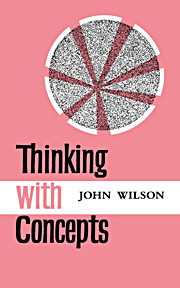Summary
This is not a book about ‘straight thinking’ or ‘clear thinking’. I know that there are books about this sort of thing, some of them very useful (like Susan Stebbing's Thinking to Some Purpose). They help the reader to become aware of his own prejudice and irrationality by discussing and illustrating the dangers of bias, fallacies, irrelevancy, not checking the facts, and so on. But their use is limited, since the methods used to teach so wide and ill-defined a subject as ‘straight thinking’ are bound to be eclectic and heterogeneous: they leave the reader more aware of the importance of reason and language, certainly: but they do not equip him with a single, coherent technique of thought which he can apply for himself over a wide field.
But such a technique exists. It was established about thirty years ago, and though it has suffered from being tied too tightly to the apron-strings of certain schools of modern philosophy, it has made a good deal of headway since then: indeed it would be reasonable to say that, in a quiet way, it has caused something like a revolution in our approach to questions of a certain type.
I have called this technique ‘the analysis of concepts’ because it is designed to handle and clarify concepts in a particular way. It provides one with a specialised and appropriate method which one can be taught to use in answering many of the more important and interesting questions which can be asked.
Information
- Type
- Chapter
- Information
- Thinking with Concepts , pp. vii - xPublisher: Cambridge University PressPrint publication year: 1970
